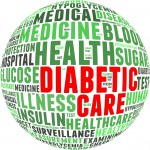
Sophie Large explores an qualitative research study that looks into young refugees experiences of coping after experiencing unaccompanied forced migration.
[read the full story...]
Sophie Large explores an qualitative research study that looks into young refugees experiences of coping after experiencing unaccompanied forced migration.
[read the full story...]
Ian Cummins considers the findings of a survey study published in May 2020 on coronavirus conspiracy beliefs, mistrust, and compliance with government guidelines in England.
[read the full story...]
Sarah Steeg reviews the new trauma-informed guidance for healthcare workers, developed by the COVID Trauma Response Working Group from UCL and the Camden and Islington NHS Trust. The guidance aims to provide a coordinated, trauma-informed and evidence-based psychological response to the COVID outbreak.
[read the full story...]
Noortje Uphoff writes her debut elf blog on a recent paper in The Lancet, which looks at what works in inclusion health; providing an overview of effective interventions for marginalised and excluded populations.
[read the full story...]
This document is aimed at clinical commissioning groups, health care planners, hospital senior managers, and clinical teams in primary and secondary care. It is an amalgamation of good practice examples where diabetes services have improved, with bed occupancy and costs being reduced. There is a specific focus on elderly, diabetic patients, and other similarly vulnerable [read the full story…]